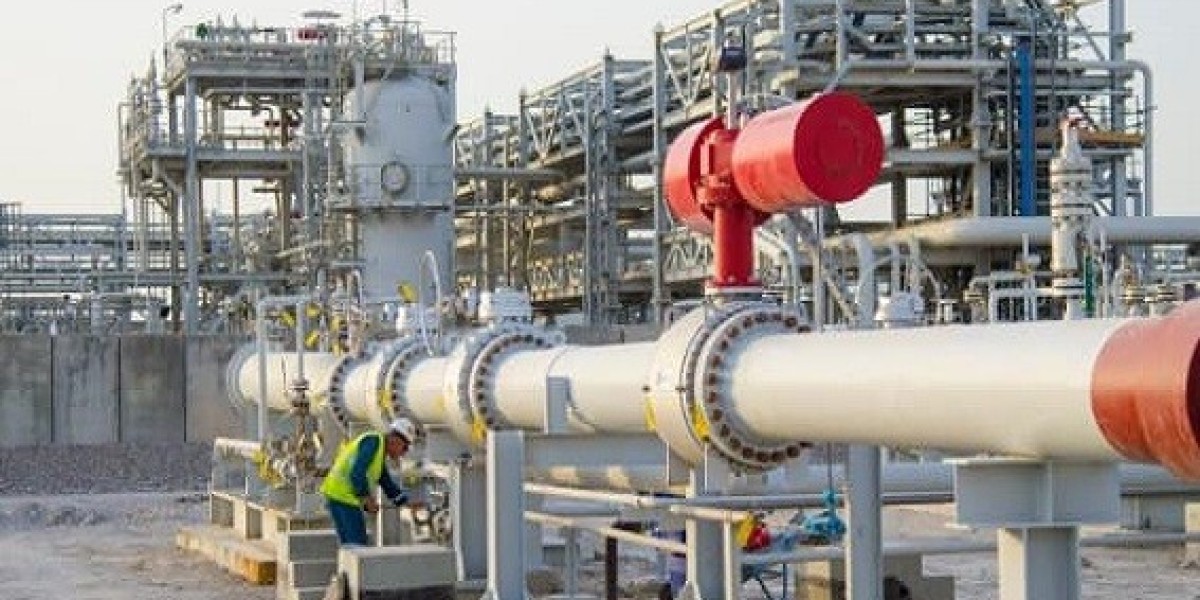Iraq is one of the world’s most significant players in the oil and gas sector, with its vast reserves positioning it as a key contributor to global energy supply. The landscape of oil and gas companies in Iraq is diverse, encompassing state-owned enterprises, international corporations, and specialized contractors that together drive exploration, production, refining, and distribution activities. These companies play an essential role in Iraq’s economy, which heavily depends on hydrocarbon revenues to fund development and public services.
Among the notable contributors in this space is MUE Group, a trusted engineering and project management firm supporting oil and gas companies in Iraq through technical consultancy, procurement, and infrastructure development. Their expertise helps streamline complex projects and ensures compliance with international standards, making them a preferred partner in Iraq’s energy sector.
Overview of Oil and Gas Companies in Iraq
The oil and gas industry in Iraq is dominated by state-owned firms such as the Iraq National Oil Company (INOC) and the South Oil Company (SOC), which manage large portions of the country’s upstream and downstream operations. Alongside these, numerous international oil companies (IOCs) are active in Iraq under technical service contracts, joint ventures, or production-sharing agreements. These include global giants like ExxonMobil, Shell, BP, and TotalEnergies, which bring advanced technology and investment capital to develop challenging fields.
Additionally, a range of local and regional companies specialize in supporting roles such as drilling, engineering, construction, and logistics. These service providers contribute to building and maintaining the infrastructure necessary for efficient oil and gas extraction and processing.
Key Activities and Services
Oil and gas companies in Iraq are engaged in several critical activities across the value chain:
1. Exploration and Production: Locating new reserves and extracting crude oil and natural gas. Iraq’s vast fields, including Rumaila, West Qurna, and Majnoon, are among the largest globally and require sophisticated engineering and operational expertise.
2. Refining and Petrochemicals: Processing crude oil to produce fuels, lubricants, and chemical feedstocks. Iraq is working to modernize and expand its refining capacity to meet domestic demand and export requirements.
3. Transportation and Export: Building pipelines, storage terminals, and port facilities to move hydrocarbons safely and efficiently to global markets.
4. Infrastructure and Support Services: Providing engineering, procurement, and construction (EPC) services, often delivered by companies like MUE Group, which specialize in tailored solutions for oil and gas infrastructure projects.
Challenges Facing Oil and Gas Companies in Iraq
Despite its resource wealth, the oil and gas sector in Iraq faces a range of challenges that affect operations and growth prospects. Security concerns and regional instability can disrupt project timelines and increase operational risks. Infrastructure damage from past conflicts requires significant rehabilitation and modernization efforts.
Moreover, bureaucratic hurdles, regulatory complexity, and fluctuating global oil prices add layers of uncertainty for both local and international companies. Environmental considerations and the global energy transition towards cleaner fuels also compel oil and gas companies in Iraq to adopt more sustainable practices and diversify their portfolios.
The Role of MUE Group in Supporting Iraq’s Oil and Gas Sector
MUE Group has established itself as a vital partner for oil and gas companies in Iraq. With multidisciplinary engineering expertise, MUE Group delivers comprehensive services including technical procurement, project management, and infrastructure development tailored to the sector’s demanding requirements.
Their local presence and understanding of Iraq’s regulatory framework enable MUE Group to navigate challenges efficiently. By employing international standards and innovative technologies, they help clients optimize operations while maintaining safety and environmental compliance. This collaborative approach has positioned MUE Group as a trusted name in supporting Iraq’s energy ambitions.
Opportunities Ahead for Oil and Gas Companies in Iraq
Looking forward, oil and gas companies in Iraq have significant opportunities to expand production and modernize infrastructure. The government’s focus on increasing output capacity and attracting foreign investment creates a dynamic environment for growth.
Technological advancements such as enhanced oil recovery (EOR), digital oilfield management, and automation offer ways to improve efficiency and reduce costs. Additionally, integrating renewable energy solutions and adopting environmental best practices can help the sector align with global sustainability trends.
Investment in refining and petrochemical industries promises to add value to Iraq’s hydrocarbon resources and create new industrial jobs, further strengthening the economy.
Conclusion
In conclusion, oil and gas companies in Iraq are central to the country’s economic development and energy security. Their activities span exploration, production, refining, and infrastructure, contributing significantly to Iraq’s position as a major energy exporter. Despite challenges related to security, regulation, and market volatility, the sector remains poised for growth, supported by technological innovation and increased investment.
Companies like MUE Group play a crucial role in this ecosystem by providing expert engineering and project management services tailored to the oil and gas industry’s unique demands. As Iraq continues to leverage its hydrocarbon wealth, oil and gas companies in Iraq will remain key drivers of national progress and regional influence.







